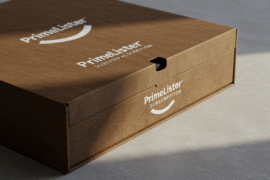This article may contain references to products or services from one or more of our advertisers or partners. We may receive compensation when you click on links to those products or services. Nonetheless, our opinions are our own.
The information presented in this article is accurate to the best of our knowledge at the time of publication. However, information is subject to change, and no guarantees are made about the continued accuracy or completeness of this content after its publication date.
As a small business owner, you often juggle many responsibilities—managing operations, engaging with customers, and driving growth. Amid this whirlwind, it’s essential not to overlook one of the most vital aspects of your venture: financial management. The health of your business hinges on your ability to navigate the complexities of finance, yet many entrepreneurs find this area daunting. Don’t worry; you’re not alone.
Unlike major corporations, small business owners often assume multiple responsibilities, which can lead to a sense of overwhelm when mastering financial skills. These five essential financial skills can empower you to take control of your business’s economic health. By honing these skills, you will enhance your confidence in managing your business finances and set a solid foundation for lasting success. Let’s dive in and equip you with the knowledge you need to thrive.
- 1. Mastering Budgeting to Keep Your Business Afloat
- 2. Understanding Cash Flow for Sustainable Growth
- 3. Navigating Taxes Like a Pro for Maximum Savings
- 4. Leveraging Technology to Simplify Your Financial Management
- 5. Building an Emergency Fund to Secure Your Business’s Future
- Investing in Your Knowledge: Resources for Continuous Learning
- Final Thoughts
- Frequently Asked Questions
- What are the key financial skills that every small business owner should have?
- How does cash flow management benefit a small business?
- Why is budgeting important for small businesses?
- What role does financial forecasting play in a small business?
- How can mastering basic accounting principles help a business owner?
- Recommended Reads
1. Mastering Budgeting to Keep Your Business Afloat
Budgeting is more than just tracking numbers—it’s a critical financial stability and decision-making tool. A well-planned budget helps you allocate resources effectively, prevent overspending, and ensure your business remains profitable.
How to Create a Business Budget:
- Identify Fixed Costs—These expenses, such as rent, salaries, and insurance, remain constant.
- Track Variable Costs—These fluctuate based on business activity, such as inventory, marketing, and utilities.
- Monitor Revenue Streams—Identify all income sources and assess their consistency.
- Use Budgeting Tools—Consider using software like QuickBooks, FreshBooks, or Excel templates to automate calculations and track spending.
- Build a Contingency Fund—Always set aside a portion of your revenue for unexpected expenses.
To make this process smoother, consider using budgeting software to automate many calculations. A good platform will enable you to visualize your spending patterns, simplifying the necessary adjustments process.
Lastly, don’t forget to build in a cushion for unexpected expenses. This practice safeguards your cash flow and gives you peace of mind, allowing you to focus on growing your business rather than worrying about finances.
2. Understanding Cash Flow for Sustainable Growth
Cash flow is the lifeblood of any business. Poor cash flow management is one of the top reasons small businesses fail. Understanding how money moves in and out of your business helps ensure you always have enough to cover expenses.
Cash Flow Best Practices:
- Create a Cash Flow Statement—Track money entering and leaving your business.
- Categorize Expenses—Know the difference between fixed and variable costs.
- Plan for Seasonal Fluctuations—Set aside extra funds during profitable months to cover lean periods.
- Use Cash Flow Forecasting—Predict future income and expenses to avoid surprises.
By categorizing your financial flows, you can pinpoint where to cut costs and how to reinvest profits efficiently. Maintaining a buffer for unexpected expenses provides peace of mind and paves the way for opportunities when they arise. Ultimately, a profound understanding of your cash flow isn’t just good practice; it’s essential for thriving in today’s business landscape.
Taxes can feel overwhelming, but understanding your tax obligations can save your business thousands of dollars annually. Proper tax planning helps you minimize liabilities, maximize deductions, and stay compliant.
Tax Management Tips for Small Businesses:
- Keep Detailed Records—Maintain organized receipts and track all transactions.
- Use Accounting Software—Automate expense tracking with platforms like Xero or Wave.
- Separate Business & Personal Finances—A dedicated business bank account simplifies tax filing.
- Claim Deductions & Credits—Take advantage of deductions specific to your industry.
Standard Tax Deductions for Small Businesses:
- Business travel expenses
- Home office deductions
- Equipment and software purchases
- Meals and entertainment for business purposes
Pro Tip: Work with a tax professional or CPA to ensure you’re not missing valuable tax-saving opportunities.
Voted "Best Overall Budgeting App" by Forbes and WSJ
Monarch Money helps you budget, track spending, set goals, and plan your financial future—all in one app.
Get 50% OFF your first year with code MONARCHVIP
4. Leveraging Technology to Simplify Your Financial Management
Embracing technology can dramatically streamline your financial management processes, giving you more time to focus on growing your business. Modern tools can help you track expenses, manage invoices, and analyze financial data effortlessly. Consider utilizing software like accounting platforms that integrate with your bank to automate transaction recording, minimizing manual entry errors and saving you precious time. Moreover, utilizing apps designed for expense tracking can facilitate better budget management and keep you informed about your spending habits.
Here are some technology solutions worth exploring:
- Cloud Accounting Software: Access your financial data from anywhere, collaborate with your accountant effortlessly, and generate reports with just a few clicks.
- Mobile Banking Apps: Stay on top of your accounts in real-time, allowing for immediate tracking of deposits and withdrawals.
- Automated Invoice Systems: Simplify your billing process, set up recurring invoices, and automate payment reminders to improve your cash flow.
- Financial Analytics Tools: These tools allow you to dive deep into your financial metrics, helping you make informed decisions based on thorough analytics.
Implementing these tools enhances efficiency and provides valuable insights into your financial health. You can make informed decisions that steer your business toward sustainable growth by leveraging technology.
5. Building an Emergency Fund to Secure Your Business’s Future
Establishing a financial cushion for your business isn’t just brilliant; it’s essential for longevity and peace of mind. The unpredictability of the market means that unexpected expenses will inevitably arise—be it equipment repairs, supply chain disruptions, or even a sudden decline in sales. By consistently setting aside a portion of your profits, you create a buffer that allows you to navigate through challenging times without derailing your business entirely. Here are some approaches you might consider:
- Start Small: Aim to save even a modest amount each month. Over time, these contributions will accumulate, providing a solid foundation.
- Automate Savings: Set up a separate business savings account and automate transfers to ensure that saving becomes a priority.
- Review Regularly: Assess your emergency fund periodically to ensure it meets your evolving business needs. Adjust the amount you save as your income grows.
With discipline and a clear goal, building an emergency fund can transform how you approach your business’s financial future, making the ride a little smoother, no matter the challenges.
Investing in Your Knowledge: Resources for Continuous Learning
Investing in your knowledge is just as vital as investing in your business. As a small business owner, staying current with financial skills can significantly impact your company’s success. Here are a few valuable resources that can boost your understanding:
- Online Courses: Platforms like Coursera and Udemy offer courses specifically tailored to small business finance, from budgeting basics to advanced financial management.
- Podcasts: Listen to financial podcasts like “The Dave Ramsey Show” or “Cash Flow Ninja” for insights from industry experts while you perform your daily tasks.
- Books: “The Lean Startup” by Eric Ries or “Profit First” by Mike Michalowicz can provide practical advice on managing your finances effectively.
Additionally, attending workshops and webinars can be incredibly beneficial. These events often provide opportunities to network while learning from experienced professionals in your field.
By choosing the right resources, you can enhance your financial literacy, leading to better business decisions. Don’t overlook the importance of continuous learning—it’s an investment that pays dividends.
Final Thoughts
Mastering these five financial skills will empower you to manage your business effectively:
- Budgeting for financial stability
- Cash flow management for sustainable growth
- Tax planning to maximize savings
- Leveraging technology to streamline operations
- Building an emergency fund for financial security
With the right approach, you can take control of your business finances, reduce financial stress, and set your company up for long-term success.
Start implementing these financial strategies today and watch your business thrive!
Frequently Asked Questions
What are the key financial skills that every small business owner should have?
Understanding cash flow management, budgeting, financial forecasting, basic accounting principles, and financial analysis are essential for small business owners. These skills help them make informed decisions that can significantly impact the business’s growth and sustainability.
How does cash flow management benefit a small business?
Effective cash flow management ensures that a business can meet its obligations, such as paying suppliers and employees on time. By closely monitoring incoming and outgoing cash, owners can identify potential shortfalls and take proactive measures to maintain liquidity, which is vital for day-to-day operations.
Why is budgeting important for small businesses?
Budgeting provides a financial roadmap for the business by outlining projected revenues and expenses. It helps owners allocate resources effectively, track performance against goals, and identify areas for adjustments. A well-crafted budget can also serve as a valuable tool for securing funding.
What role does financial forecasting play in a small business?
Financial forecasting helps small business owners anticipate future financial trends based on past data and market analysis. It allows them to create strategic plans, prepare for potential challenges, and seize growth opportunities. Accurate forecasting can lead to better decision-making and increased financial stability.
How can mastering basic accounting principles help a business owner?
A solid grasp of basic accounting principles allows small business owners to keep accurate records, understand financial statements, and monitor their financial health. This knowledge can help them make sense of their profitability, manage expenses, and prepare for taxes, ultimately leading to better financial control and clarity.

Reviewed and edited by Albert Fang.
See a typo or want to suggest an edit/revision to the content? Use the contact us form to provide feedback.
At FangWallet, we value editorial integrity and open collaboration in curating quality content for readers to enjoy. Much appreciated for the assist.
Did you like our article and find it insightful? We encourage sharing the article link with family and friends to benefit as well - better yet, sharing on social media. Thank you for the support! 🍉
Article Title: 5 Financial Skills for Small Business Owners
https://fangwallet.com/2025/03/19/cash-flow-management/The FangWallet Promise
FangWallet is an editorially independent resource - founded on breaking down challenging financial concepts for anyone to understand since 2014. While we adhere to editorial integrity, note that this post may contain references to products from our partners.
The FangWallet promise is always to have your best interest in mind and be transparent and honest about the financial picture.
Become an Insider

Subscribe to get a free daily budget planner printable to help get your money on track!
Make passive money the right way. No spam.
Editorial Disclaimer: The editorial content on this page is not provided by any of the companies mentioned. The opinions expressed here are the author's alone.
The content of this website is for informational purposes only and does not represent investment advice, or an offer or solicitation to buy or sell any security, investment, or product. Investors are encouraged to do their own due diligence, and, if necessary, consult professional advising before making any investment decisions. Investing involves a high degree of risk, and financial losses may occur including the potential loss of principal.
Source Citation References:
+ Inspo
There are no additional citations or references to note for this article at this time.












































